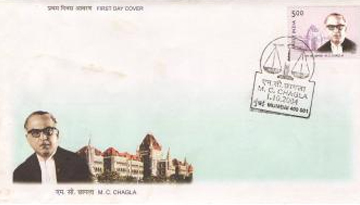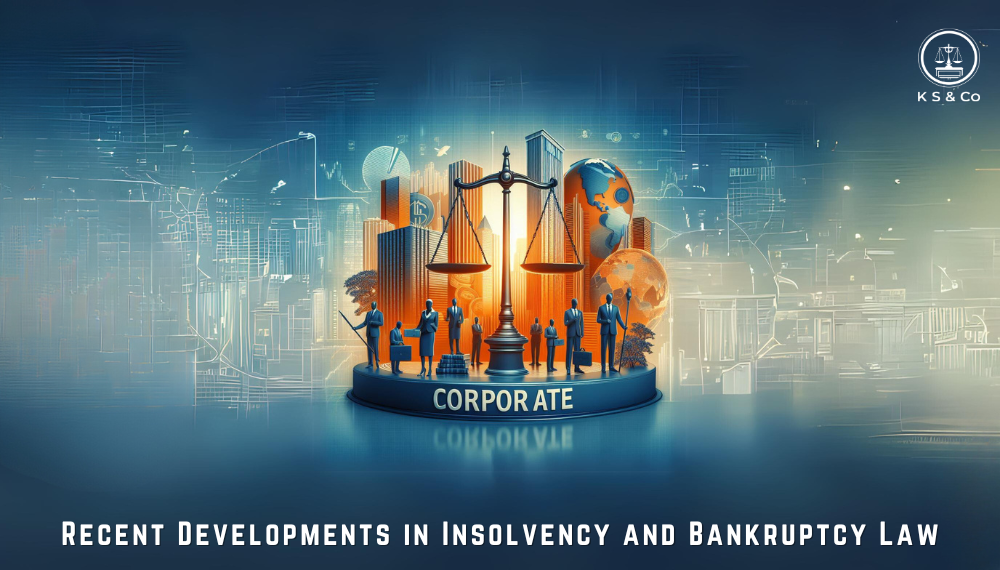Recently, the Bombay High Court ruled that stamping of document is not necessary for the appointment of arbitrator. However, within few days post this judgment, the Apex Court overruled it and held that stamping of document is required for the appointment of arbitrator. Such uncertainty of the law discourages the parties to make India as the seat of arbitration. With this background, we are delighted to share our newsletter on arbitration covering the recent judgments affecting the arbitration regime of the country.
Arbitration Agreement to be duly stamped for the courts to take cognizance of it: SC
The Supreme Court in Garware Wall Ropes Ltd v. Coastal Marine Constructions & Engineering Ltd., Civil Appeal No. 3631 of 2019, held that the Indian Stamp Act applies to the agreement or conveyance as a whole and therefore it is impossible to bifurcate the arbitration clause contained in an agreement or conveyance so as to give it an independent existence. In this case, there was a sub-contract for the installation of geo-textile tubes embankment with toe mound between the parties. However, dispute arose and the appellant terminated the sub-contract. The respondent invoked the Arbitration clause and sent a notice for the appointment of an arbitrator. The appellant rejected the appointment stating that the agreement is not duly stamped and so the invocation of arbitration in pursuance of agreement is premature as per Sections 33 and 34 of the Indian Stamps Act. The respondent filed an application under Section 11 to Bombay High Court for the appointment of arbitrator. The high court appointed the arbitrator. However, a special leave petition was filed in the Supreme Court, questioning the effect of an arbitration clause contained in a contract which requires to be stamped as per the Indian Stamp Act. The Supreme Court granted the leave and reasoned that when an arbitration clause is contained “in a contract”, it is significant that that an agreement only becomes a contract if it is enforceable by law. Since the agreement between the parties is not duly stamped, the arbitration clause alone cannot exist, therefore, the agreement as a whole is not enforceable by law. Thus, the doctrine of harmonious construction should be applied reasonably by impounding the instrument, making it legally enforceable by paying the stamp duty and penalty (if any) and then applying Section 11 for appointment of an arbitrator to proceed with the dispute.
Our Comments:
The object of amending The Arbitration and Conciliation Act was to minimize the intervention of courts at the pre-arbitral stage. The courts should limit their concern to the issue of ‘existence’ of an arbitration agreement and upon satisfaction, should appoint an arbitrator to deal with other preliminary issues.
Court should appoint arbitrator as per the terms of the Agreement: SC
The Supreme Court in the case of Union of India v. Parmar Construction Co, Civil Appeal No(s). 3303 of 2019, held that Court can appoint independent arbitrator only after resorting to the procedure prescribed in the arbitration agreement. In this case, the respondents contracted with railway establishment to undertake construction works of various kinds. They raised a demand for escalation cost and the interest accrued thereon because the project was delayed due to breach of obligations by the appellants. In the meantime, the prices of raw material increased and hence appellants were requested to pay the enhanced escalation price. Dispute arose when the appellant refused to pay the escalated cost. Each of the respondents sent notice, invoking the arbitration clause which was declined by the appellant on the grounds that ‘no dues certificate’ has been furnished. The Rajasthan HC appointed an independent arbitrator without adhering to the mutually agreed procedure. Aggrieved by this, appellant filed a special leave petition in the Apex Court. SC granted the leave and observed that the independence and impartiality of the arbitrator was never doubted and that the requests deserve to be examined in accordance with the principle Act, ignoring the amendments of 2015. Further, the Court quashed the orders passed by the High Court. SC acknowledged that mere furnishing of no claim certificate would not take away the right of the parties. The appellants are directed to appoint the arbitrator (i.e. Railway gazetted Officers in accordance with the principle Act in terms of clause 64(3) of the agreement.
Our Comments:
The Court should not wait for the application of challenge of arbitrator and should appoint an arbitrator which has less chance of justifiable doubts arising. The Apex Court should have considered the provisions of amendment act and not allow the Railway employee to be the arbitrator.
There is no direct nexus between “deposit-at-call” and dodging frivolous claims: SC
The Supreme Court in M/s ICOMM Tele Ltd. v. Punjab State Water Supply and Sewerage Board and ANR, Civil Appeal No. 2713 of 2019, held that pre-deposit clauses to invoke arbitration would render the arbitral process ineffective and expensive. In this case, the respondent issued a notice inviting tender for civil works for various towns mentioned therein on a turnkey basis. The appellant company was awarded the tender and a formal contract was entered into between the parties. Clause 25(viii) of the contract contained an arbitration clause which states that the party invoking arbitration shall furnish a ‘deposit-at-call’ for ten percent of the amount claimed to avoid frivolous claims. The appellant filed civil writ petition, twice, before the HC of Punjab and Haryana for waiving the 10% deposit fee. The petition was dismissed both the times on the grounds that such tender condition can in no way be said to be arbitrary or unreasonable. The SC however opined that a pre-deposit of 10% would discourage arbitration, contrary to the object of de-clogging the Court system, and would render the arbitral process ineffective and expensive. Also, a “deposit-at-call” of 10% of the amount claimed, which can amount to large sums of money, is obviously without any direct nexus to the filing of frivolous claims, as it applies to all claims (frivolous or otherwise) made at the very threshold. On the other hand, it is well settled that a frivolous claim can be dismissed with exemplary costs. Thus, SC struck down clause 25(viii) of the notice inviting tender.
Our Comments:
In recent times, the users have complained regarding the costly nature of the arbitration. This judgment of the Apex Court is a welcome step and promotes the pro arbitration approach of the courts.
Former Employee not disqualified from acting as an Arbitrator: SC
The Supreme Court in the case of The Government of Haryana PWD Haryana (B and R) Branch v. M/s G.F. Toll Road Pvt. Ltd and Ors, Civil Appeal No. 27/2019 held that the former employee of one of the parties is not disqualified from acting as an Arbitrator. In this case, the parties entered into a concession agreement for construction works that contained an arbitration clause. Dispute arose and both the parties appointed retired Engineer-in-chief as their nominee arbitrator. Respondents raised an objection on the grounds that being a former employee, there are justifiable doubts regarding his independence and impartiality. Appellant requested the respondent no.2 i.e. the ICA (Indian Council of Arbitration) to appoint a substitute arbitrator within a period of 30 days. However, ICA had already appointed a nominee arbitrator on behalf of the Appellant, as well as the Presiding Arbitrator. Aggrieved by the appointment, appellant filed an application under Section 15 and Section 16 of the Arbitration and Conciliation Act, 1996 before the District Court, Chandigarh. The District Court and the HC dismissed the Petition on the ground that the Appellant could raise the issue of jurisdiction under Section 16 before the arbitral tribunal. Aggrieved by the order, the appellant filed the Petition before the SC. The Court emphasised on Section 15(2) of the Arbitration and Conciliation Act, 1996, which states that for any reason, a substitute arbitrator shall be appointed according to the rules applicable to the appointment of the arbitrator being replaced. Also, the present case is governed by the pre-amendment Act which does not contain any such ground for disqualification. The objection of reasonable apprehension of bias raised was wholly unjustified and unsubstantiated as the former employee retired 10 years before. Also, during the hearing, the counsel for both parties mutually agreed to the arbitration being conducted by a Sole Arbitrator.
Our Comments:
The Court was justified in rejecting the challenge as not every former employee can be disqualified for acting as an Arbitrator. The threshold of justifiable doubts has to be met in order to remove the Arbitrator on the ground of independence and impartiality.
Lawful for a Counsel in an Arbitration Proceeding to enter into a Contingent Contract: Bombay HC
The Bombay High Court in Jayaswal Ashoka Infrastructure Pvt. Ltd v. Pansare Lawad Sallagar, First Appeal No. 106 of 2015, held that it is not unlawful for an Advocate to enter into a contingent contract in the arbitration proceedings. In this case, the Appellant firm approached the Respondent firm for seeking consultancy services in arbitration matters. They entered into an agreement and one of the terms of the agreement was that the respondent would be entitled to 1% of the award amount up to Rs. 1,00,00,000/- and 1.50% of the award amount over the amount of Rs. 1,00,00,000/-. Based on the result of said arbitration proceedings, it raised a claim for Rs.1,28,37,817/- for the amount due for the services rendered. As the aforesaid amount was not paid despite demand, the respondent filed suit for recovery of the aforesaid amount with interest in the Trial Court. By its judgment dated 26/11/2014, the Trial Court decreed the suit and directed payment of the decree amount with interest at the rate of 9% per annum. Being aggrieved by that decree, the appellant filed the present appeal in Bombay HC. The appellant argued that the agreement was in contravention of Section 23 of the Contracts Act, 1872. It was because the partner of the respondent firm was a lawyer and thus could not claim based on the outcome of the arbitration proceedings. The HC reasoned that the partner of the respondent-firm had represented the defendant in the arbitration proceedings as a counsel and not as an advocate. It rightly relied upon the provisions of Order III Rules 1 and 2 of the Code along with Section 2(15) of the Code to articulate that there was nothing against public policy and public morals in such a transaction “per se”. Hence, the agreement was considered enforceable and the appeal was dismissed with costs.
Our Comments:
The court attempted to draw distinction between “partnership firm of lawyers” and a lawyer who is a partner. This judgment may have a larger consequence and might need a review as there is also a legal principle that court cannot permit an action which is prohibited by law directly, cannot be allowed to be done indirectly.






